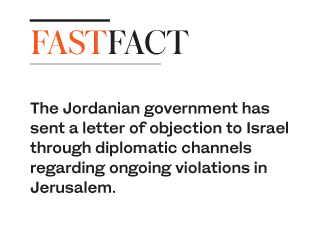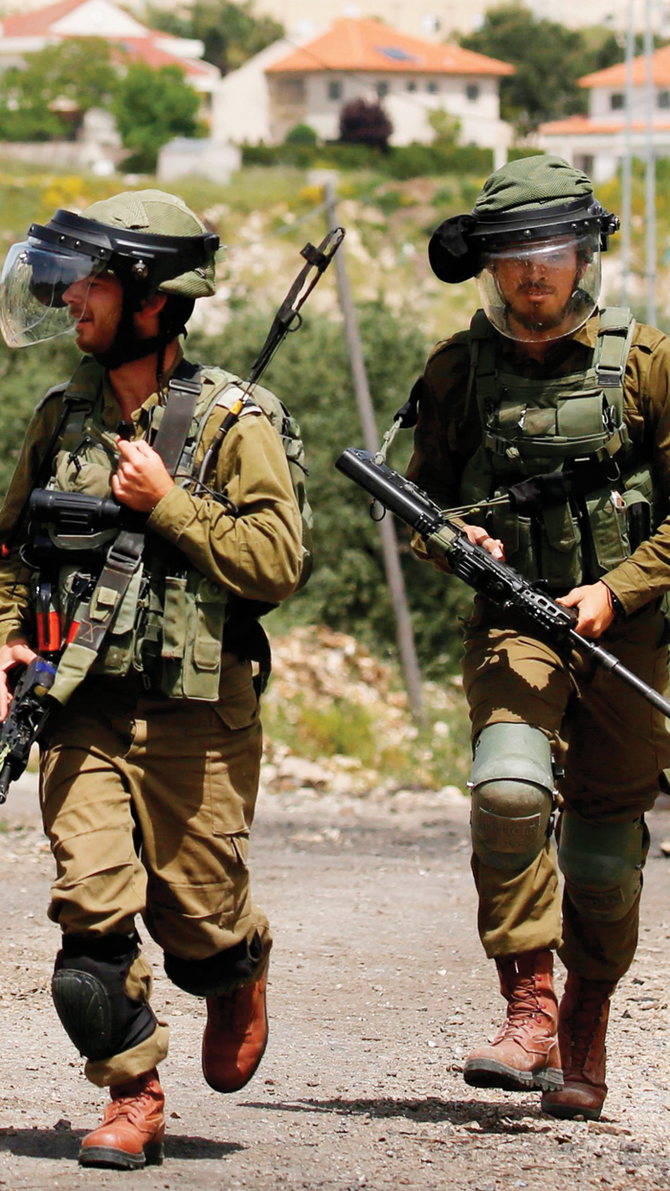AMMAN: Jordan issued a statement on Thursday condemning Israel’s lack of action against Jewish extremists who regularly attempt to pray on the grounds of Al-Aqsa Mosque and its surrounding compound, Al-Haram Al-Sharif.
The statement came after a week of tension in Jerusalem during the Jewish Passover holiday. A significant number of Israelis were allowed to enter Al-Haram Al-Sharif under police protection, and some paid an unscheduled visit to Al-Aqsa Mosque, sparking a confrontation.
Arafat Amro, head of the Islamic Museum of Archaeology at Al-Aqsa Mosque, told Arab News that the head of the Jerusalem police was among those who entered the mosque without obtaining permission from the Jerusalem Islamic Waqf — the religious trust that manages the Islamic sites in Al-Haram Al-Sharif.
Amro claimed that when he confronted the group and asked if they had arranged their visit with the Waqf, “the head of the police threatened me, saying that I would never be able to enter the mosque again.”
After Amro left the mosque on Wednesday, he was arrested by Israeli police and accused of interfering with the work of the police in Al-Haram Al-Sharif, which Israelis call the Temple Mount. Amro claims he was threatened and harassed during his interrogation. He was later barred from visiting the mosque for 15 days.
“I was told that if I came to Al-Aqsa Mosque, I would have to pay a fine of 10,000 shekels ($3,400). I replied that I am an employee of the Jordanian government.”
In a statement on Thursday, a spokesperson for Jordan’s Foreign Ministry, Sufian Qudah, said, “Such irresponsible acts provoke millions of Muslims around the world.”
Qudah added that the government had sent a letter of objection to Israel through diplomatic channels regarding ongoing violations in Jerusalem.
He went on to say that Israel’s “denounced and rejected” measures in Jerusalem are an attempt to change the status quo in the city, and reiterated that the Jerusalem Islamic Waqf is the sole caretaker of Al-Aqsa Mosque and the only organization with the authority to grant entry to the complex.
Qudah emphasized that Israel, as an occupying power, must honor its obligations under international law, which considers East Jerusalem an occupied territory.
Jordan and Israel have been at loggerheads for some time. King Abdullah II and Israeli Prime Minister Binyamin Netanyahu have not spoken to each other since October 2017, when an Israeli security guard killed two Jordanians in the Israeli embassy in Amman.
Jordan condemns Israeli trespassing at Al-Aqsa Mosque
Jordan condemns Israeli trespassing at Al-Aqsa Mosque

- A significant number of Israelis allowed to enter Al-Haram Al-Sharif under police protection
Egypt’s parliament approves cabinet reshuffle: state media

- The reshuffle brings in 14 new ministers and creates a new post for a deputy prime minister in charge of economic affairs
CAIRO: Egypt’s parliament approved a limited cabinet reshuffle on Tuesday, endorsing changes proposed by President Abdel Fattah El-Sisi, state media reported.
The reshuffle brings in 14 new ministers and creates a new post for a deputy prime minister in charge of economic affairs, according to the state-owned Al-Ahram newspaper.
The former head of parliament’s budget and planning committee, Hussein Issa, was appointed to that post.
Ahmed Rostom, a former specialist at the World Bank, was appointed minister of planning.
Mohamed Farid Saleh, who was executive chairman of Egypt’s Financial Regulatory Authority, was named minister of investment and foreign trade.
The changes also include the revival of the Ministry of Information, which will be headed by Diaa Rashwan, the current head of the State Information Service (SIS).
The ministry, tasked with overseeing media policy, had been dissolved several times following the 2011 uprising that toppled former president Hosni Mubarak, with its functions transferred later to media regulatory bodies.
As part of the reshuffle, the transport and industry ministries were separated.
Kamel Al-Wazir will continue as minister of transport only, having previously overseen both portfolios.
Planning was also separated from international cooperation, with Rania Al-Mashat remaining as minister of international cooperation.
Several key ministers retained their posts, including the ministers of finance, foreign affairs, defense, interior, petroleum and health.
The new government is expected to be sworn in on Wednesday, Egyptian media reported.















